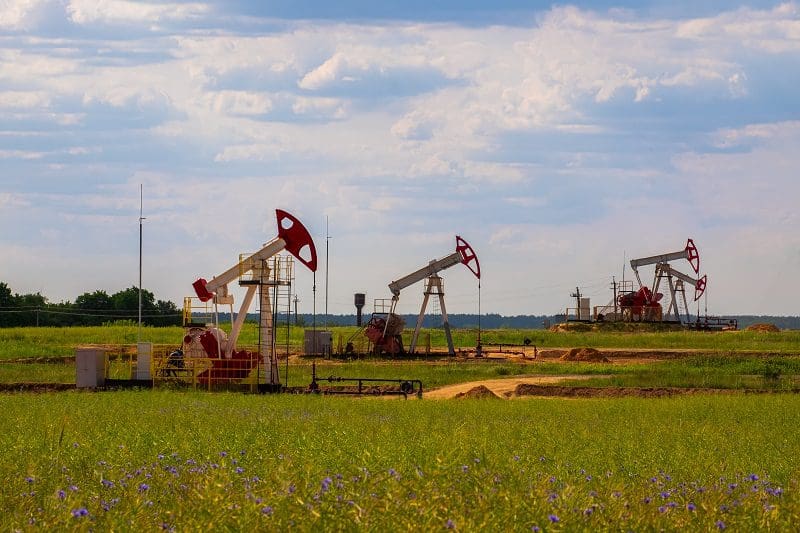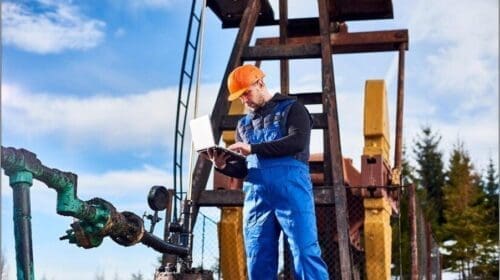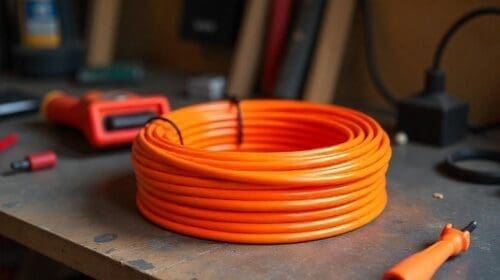Working in an oilfield is considered one of the most dangerous and deadliest jobs worldwide. Oil fields present potential risks for accidents, resulting in fatal or severe injuries.
Although there are some rules and regulations that management and workers are supposed to enforce and follow, safety tends to be an overlooked element in onsite operations. The effects of such injuries can be lasting and severe depending on the kind of injury or accident.
Luckily, if you’re a victim of an oilfield accident, you can file a claim to get the compensation you deserve. For more information, you can get the facts here.
Moreover, below are some of the common oilfield accidents and the ways to avoid them:
- Electrocution
When you’re working in an oilfield, you get exposed to various chemicals that may conduct electricity, which may increase electrocution risks. If electrocution happens, it may cause burns, unconsciousness, or death. The best way to avoid it is to be vigilant with exposed electrical wires and have your management do a maintenance check on them regularly.
- Equipment Failures
A drilling site features dangerous and massive pieces of equipment. These are all necessary for mixing mud, drilling, pulling pipes, and other activities that occur on the worksite. Such kinds of equipment are heavy and massive. If they’re faulty, they can be fatal.
Therefore, ensure that every heavy machinery onsite is well-maintained to keep everyone safe. Workers should also be provided with proper training for improved safety and operations. When employees haven’t trained appropriately or when the pieces of machinery aren’t maintained regularly, accidents may happen.
- Slips And Falls
Slips and falls can be serious injuries for any oilfield worker. Contractors may easily slip while working in an oilfield, especially when they’re working on an elevated rig. Such incidents can be prevented with proper safeguards.
- Blowouts
An oil well blowout may happen in an oilfield when there’s an uncontrolled release of oil or gas while drilling. Usually, it can be due to faulty machinery, especially in pressure control systems.
While a blowout isn’t entirely dangerous on its own, it can be harmful when the oil is ignited. To avoid an oil well blowout, be aware of the warning signs like liquid spurts and increased pressure, mainly when gas, water, or oil enters the well during drilling. You should also ensure that the blowout preventers (BOPs) are in good condition.
- Burns
When working in an oil-based environment, it’s possible to get caught in a fire or an explosion, regardless of extended precautions. This type of oilfield accident may affect one’s physical appearance or quality of life.
Some types of burns that may happen in an oilfield include:
- Contact Burns – It’s the general term for any type of non-flash burn due to contact with steam, molten metal, or hot surfaces.
- Flash Burns – These burns can happen quickly and cause first-degree burns, affecting your skin’s outer layers.
- Electrical Burns – Workers operating circuit breakers, pumps, generators, and switches can be at risk for electrical burns.
- Chemical Burns – This is the most common burn that may happen to oilfield workers, especially those who come into contact with the drilling chemicals. Such chemicals may seep through your clothes and result in a severe burn.
- Gas Poisoning
One commonly found gas in an oilfield is hydrogen sulfide, which can quickly collect in places with little to no ventilation. This kind of gas is colorless and undetectable.
While known for its rotten-egg smell, workers who inhale too much of this gas may experience olfactory fatigue. Workers may also suffer from various symptoms, such as headaches, nausea, and rapid unconsciousness. Being aware of its signs and symptoms and wearing masks can prevent workers from gas poisoning.
- Rig Collapse Injuries
An oil rig weighs thousands of tons to balance stability and power. Sometimes, fast construction using a sloppy method may result in an unstable rig.
Once rigs collapse, they can cause:
- Back injuries
- Severed limbs
- Traumatic brain injuries
- Broken bones
Workers trapped beneath a rig or high up on collapsing rigs can result in death. Wearing safety gear and ensuring a stable rig can prevent this from happening.
- Motor Vehicle Accidents
Surprisingly, a motor vehicle accident may still happen in an oilfield. It can occur when commuting from and to hard-to-access sites. To prevent this accident, pay attention to the surroundings when using a motor vehicle, particularly gas or oil vehicles.
Tips To Avoid Oilfield Accidents
Accident prevention is essential not only to protect workers but also to avoid expensive litigation. To prevent potential injuries and accidents, here are the tips to know:
- Wear Protective Equipment
It’s easy to forget your gloves or helmet when working in an oilfield or dealing with an urgent matter. However, this oversight may have consequences that might lead to death or serious injuries. So, regardless of your duties and responsibilities, always wear protective equipment.
- Have A Proper Training Program
To ensure the welfare and safety of everyone working in an oilfield, create a training program or manual that workers should go through. The training must cover everything from how to store machinery and tools to the proper responses to falls, fires, and other emergencies.
- Check Your Facilities And Tools Regularly
Loose railings, malfunctioning tools, and some areas of disrepair may put you at risk. Ensure to check all your facilities and equipment regularly to ensure they’re in good shape and safe to use.
- Keep The Oilfield Clear And Clean
When tools aren’t cleaned up often or are lying around after use, they may pose risks to everyone in the area. To avoid that, have someone do a walkthrough of the entire oilfield to ensure it’s hazard-free and safe.
- Encourage Safety Communication
Another way to prevent common oilfield accidents is to encourage safety communication. Oil and gas jobs aren’t easy, so ensure that your employees aren’t afraid to speak up once they see a problem.
They must tell the site manager if safety problems are looming, whether they stem from unsafe areas of the field or other issues. It ensures that supervisors and workers can quickly resolve the concerns, preventing accidents or injuries.
Conclusion
Oilfield accidents may happen anytime. By knowing how to avoid them and understanding the different types of oilfield accidents, you can prevent possible accidents or injuries from happening. Still, if an accident occurs, it would be best to seek legal help from an experienced and highly qualified oilfield accident lawyer.
Oil and gas operations are commonly found in remote locations far from company headquarters. Now, it's possible to monitor pump operations, collate and analyze seismic data, and track employees around the world from almost anywhere. Whether employees are in the office or in the field, the internet and related applications enable a greater multidirectional flow of information – and control – than ever before.




![Why Enhanced Geothermal Energy Could Be Your Next Smart Investment [2025 Guide]](https://b1006343.smushcdn.com/1006343/wp-content/uploads/2025/06/Why-Enhanced-Geothermal-Energy-Could-Be-Your-Next-Smart-Investment-2025-Guide-500x280.jpg?lossy=2&strip=1&webp=1)




